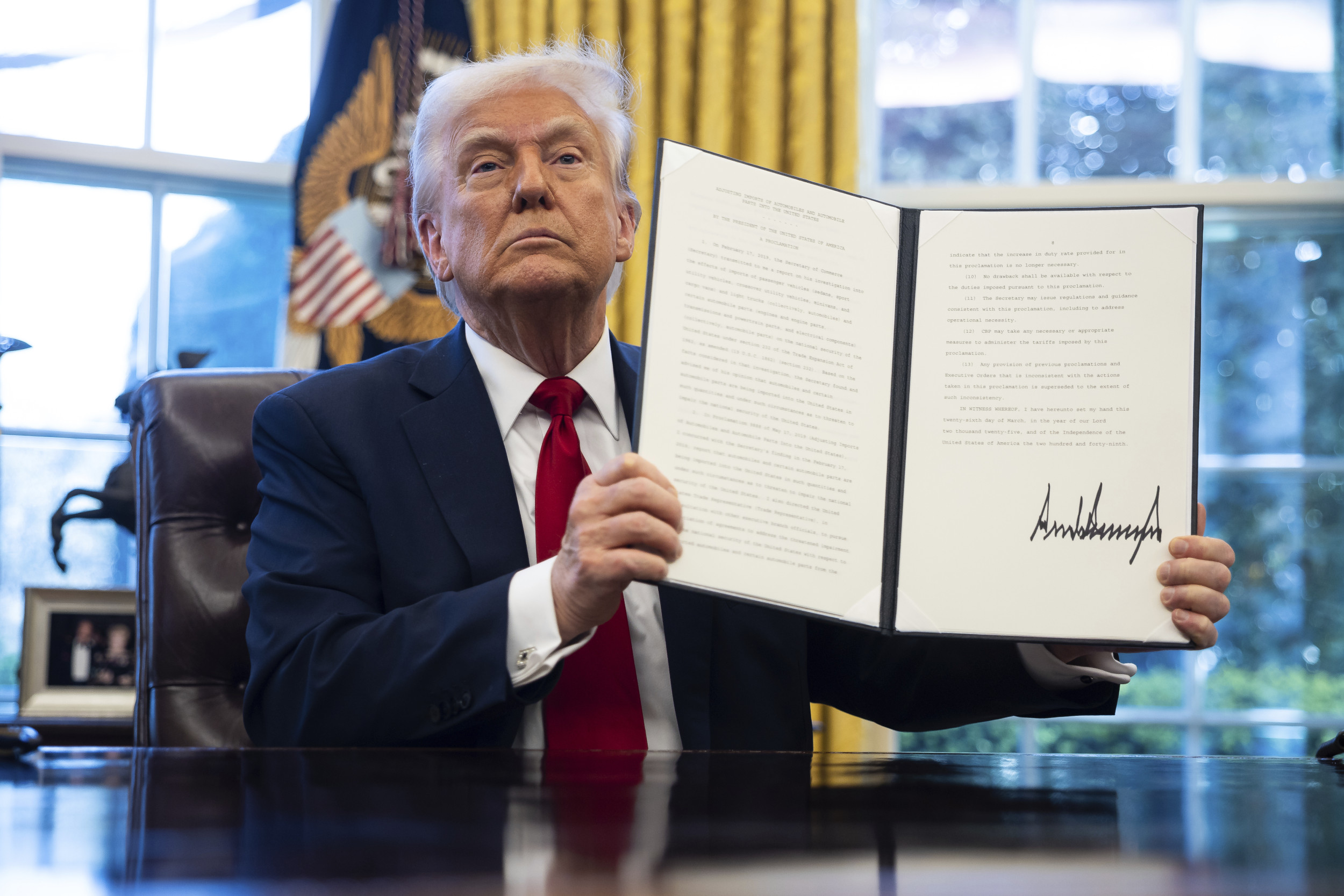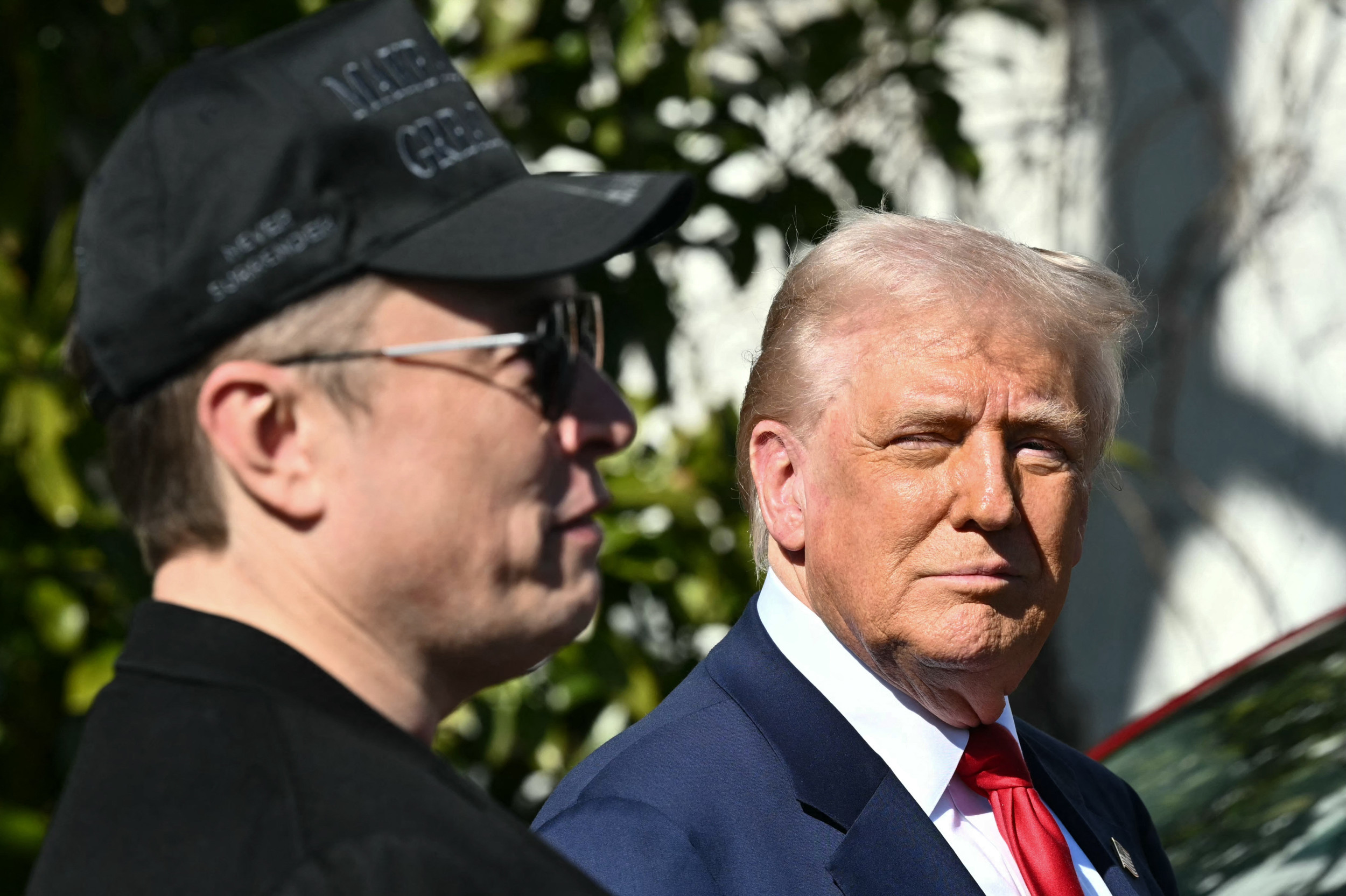President Donald Trump has vowed to impose secondary tariffs on nations that purchase oil from Russia if Moscow fails to agree to a ceasefire in Ukraine.
Why It Matters
Secondary tariffs are a tool countries use to extend economic pressure beyond their borders. Primary sanctions restrict local entities from doing business with a targeted country, while secondary tariffs threaten punitive duties or bans on any foreign business or government that deals with the target nation.

"Secondary tariffs also aim to close loopholes in primary sanctions or tariffs by penalizing those facilitating circumvention, typically through trade diversion or trans-shipment," Aston Business School Professor Jun Du told Newsweek.
The proposed tariffs, which range from 25 to 50 percent, would therefore not directly target Russia but would penalize foreign countries that continue trading with it, thereby discouraging global support for the Russian oil industry.
What To Know
On Sunday, Trump told NBC News: "If Russia and I are unable to make a deal on stopping the bloodshed in Ukraine, and if I think it was Russia's fault ... I am going to put secondary tariffs on oil, on all oil coming out of Russia."
"That would be that if you buy oil from Russia, you can't do business in the United States," the president said in a phone interview with the outlet. "There will be a 25 percent tariff on all oil, a 25- to 50-point tariff on all oil."
The U.S. has not imported Russian crude oil since April 2022, data from the U.S. Energy Information Administration shows.
The data shows that the U.S. bought inconsistent volumes of Russian oil, ranging from a high of 98.1 million barrels in 2010 and a low of 6.6 million in 2014.
China and India were the two largest buyers of crude oil from Russia between December 2022 and January this year, according to the Centre for Research on Energy and Clean Air.
Crude oil made up 73 percent of China's imports of fossil fuels from Russia in January.
This means that the countries affected by these secondary tariffs would include China and India, as well as Turkey and some EU countries including Hungary, Slovakia, and the Czech Republic.
Compared to standard tariffs, secondary tariffs are often more effective at isolating a target nation. Trump's threat, if carried out, would force these countries to choose between Russian energy and access to the American market.
The president's proposed action mirrors the approach he took with Venezuela last week, when he imposed a 25 percent secondary tariff on U.S. imports from countries that buy Venezuelan oil.
Trump also said on Sunday he could hit buyers of Iranian oil with secondary sanctions if Tehran did not reach an agreement to end their nuclear weapons program, Reuters reported.
What People Are Saying
Jun Du, Professor of Economics at Aston Business School, said: "Secondary tariffs can be a powerful enforcement tool against Russia by targeting third countries or companies that reroute restricted goods, for example dual-use technologies, into Russia. They discourage sanctions evasion via intermediaries, raise the cost of doing business with Russia, and help maintain the existing sanctions regime. They are particularly relevant as Russia has increasingly relied on parallel import networks. This might push Russia to submit to Trump's cease fire intervention in Russia-Ukraine war."
L. Alan Winters, Professor Emeritus of Economics at University of Sussex Business School, told Newsweek: "If [the tariffs] caused India and China to stop buying Russian oil, they'd certainly be effective in increasing pressure. However, I am not sure they will have much effect though. Neither India nor China would relish being seen to give in to U.S. pressure. India is being courted by the West, including the U.S., and if it objected strongly and threatened to slow progress on the India-West détente, I think Trump would blink. China is bracing for trade war and has clearly decided that strength is their key response not cooperation."
Warren Patterson, the head of commodities strategy at ING, told Reuters: "There's an element of fatigue with the announcements from the U.S. administration on tariffs and sanctions. So I suspect until we get something more concrete, the market is not going to overreact to this."
What Happens Next
Trump has indicated that he could bring in the secondary tariffs within a month if negotiations with Russia fail. How effective these tariffs could be depends on "how India and China respond, and negotiate with both Trump and Russian sides," according to Du.
"Raising costs of importing from China and India may induce price hikes in the U.S., especially in intermediate goods, damaging U.S. competitiveness. Given it takes time to set up new supply chains domestically, the U.S. might not be ready to face this consequence," Du added.
Update 03/31/25, 07:05 a.m. ET: This article has been updated with comment from L. Alan Winters.
About the writer
Jasmine Laws is a Live News Reporter at Newsweek based in London, U.K. Her focus is reporting on health insurance, ... Read more




